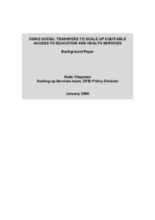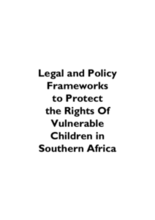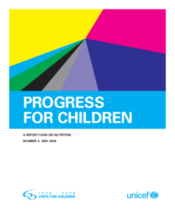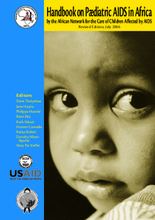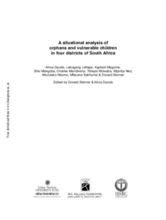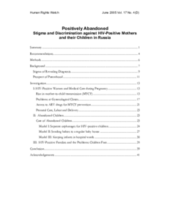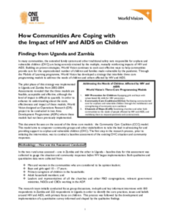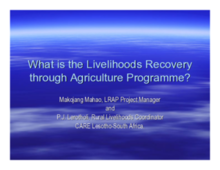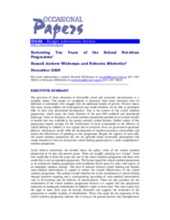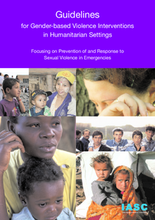Displaying 221 - 230 of 243
This paper focuses on the impact of one form of demand-side policy option - social transfers, particularly cash transfers and vouchers - on access to health and education services by the extreme poor.
Reviews legal and policy frameworks for the protection of OVC rights in 10 Southern African countries. Includes key concerns and recommendations. Appendix includes country-specific details of National Policies on Orphans and Vulnerable Children and National Plans of Action.
Evaluates global improvements in nutrition as progress towards achieving the Millenium Development Goals (MDGs). Suggests that the MDGs are attainable only with re-prioritization of efforts to reduce child undernutrition.
A practical resource handbook for health professionals. Topics covered include HIV epidemiology, preventing HIV infection, care of HIV-exposed or HIV-infected children, diagnosis and clinical staging of HIV infection, clinical conditions associated with HIV, antiretroviral therapy, adolescent issues, long-term and terminal care planning for children affected by HIV/AIDS and their families, counseling and psychosocial support, and nutrition.
Identifies strengths and weaknesses of services offered to OVC in South Africa. A detailed list of recommendations suggests improvements to services.
Russia is home to one of the fastest-growing AIDS epidemics in the world, but the government has done little to address the problem.
Assessment of pilot programs employing World Vision Community Care Coalition model in Uganda and Zambia.
A description of a multi-level intervention in rural Lestho aimed to improve the livelihood security of vulnerable households by improving home gardening, increasing awareness of HIV/AIDS, and influencing policy. By focusing on rural livelihoods and economic empowerment the program had some success in raising awareness and strengthening resilience to the HIV/AIDS epidemic.
Reviews the history, effectiveness, and efficacy of the School Nutrition Programme in South Africa. Conclusions strengthen arguments for programme expansion.
Comprehensive guidelines for dealing with the planning, establishment, and coordination of multisectoral interventions to prevent and respond to sexual and gender-based violence.

